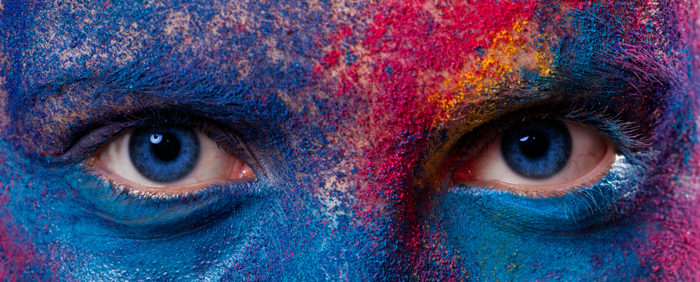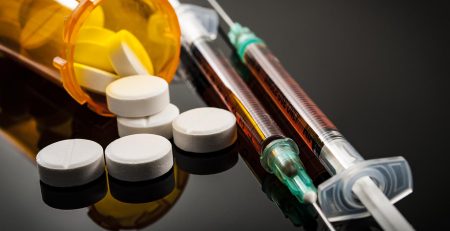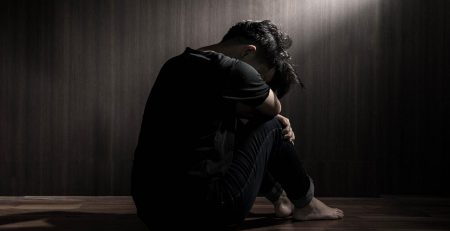When abused, drugs and alcohol can cause the user to partake in behavior that they normally wouldn’t, or to experience some unusual side effects, but when this goes too far, it may be symptoms of drug-induced psychosis. However, when this goes too far, it may indicate a serious, psychological problem. Today we’re sharing a list of common signs and symptoms of drug-induced psychosis and what it means to experience psychosis from drugs.
What Is Drug-Induced Psychosis?
Drug-induced psychosis is an episode of psychosis that has been triggered by the use of drugs or alcohol. Psychosis itself refers to conditions that affect the mind, during which the individual loses touch with reality.
Also referred to as drug-induced psychotic disorder, this condition often appears to be the result of an underlying mental health issue that has been brought on by substance abuse. Drug-induced psychosis may occur after taking too much of a drug, during drug withdrawal, or as a negative side effect of mixing substances.
It can occur with both illicit drugs as well as prescription drugs that are abused and may get worse over time. Typically, drug-induced psychosis draws on the user’s chemical and psychological dependence on the substance and leads them to have a temporary break from reality.
While it sounds extreme, drug-induced psychosis is estimated to occur in 36.5% of methamphetamine users. It is a serious matter that often requires the attention of medical experts. It can lead to long-term mental health problems that may hinder that person’s ability to live a normal life.
In some cases, it may even lead the person to commit suicide or harm themselves. One study found that as many as 18% of patients who experience a psychotic episode will attempt suicide or practice self-harm before seeking mental health care.
Questions about our Programs?
Our admissions coordinators are available 24/7 to answer any questions you may have as you consider whether treatment at Banyan is right for you or your loved one.
Drug-Induced Psychosis Signs and Symptoms
It’s important to be able to recognize the signs and symptoms of drug-induced psychosis as soon as possible so that the person experiencing this problem can receive mental health treatment before their symptoms get worse or they attempt to hurt themselves. If left untreated, substance-abuse psychosis may get worse, especially if the dosage or frequency of the drug use increases.
During an episode of psychosis from drug use, a person’s thoughts and perceptions are severely disturbed to the point where they may struggle to understand what’s real and what’s not. Some of the most common drug-induced psychosis symptoms include:
- Hallucinations and delusions (usually appear shortly after drinking or taking the drug)
- Incoherent or nonsense speech
- Behavior that’s inappropriate for the situation
- Confusion
- Paranoia
- Anxiety and panic attacks
- Social withdrawal
Hallucinations are typically auditory or visual experiences, meaning the person may hear or see things that aren’t real. Delusions refer to firmly held false beliefs that are not consistent with reality.
Three types of drug-induced delusions may occur in someone suffering from psychosis:
- Persecution delusions: where you might believe someone is spying on you
- Jealousy delusions: these often involve a partner, where you may believe they have been unfaithful, despite not having evidence to prove it
- Grandiose delusions: where you may experience an exaggerated sense of power, such as believing that you have magical abilities or you have made a major discovery
From the outside, your loved one may appear confused and talk about something that doesn’t make sense. They may even partake in unusual and strange behaviors.
Drug-induced paranoia may also occur during an episode of psychosis. Because of these hallucinations, the person may mistakenly believe that something or someone is out to get them.
If someone shows signs of psychosis, get help immediately. Our facility offers various Florida mental health services to help people struggling with mental illness as well as co-occurring disorders.
How Long Does Drug-Induced Psychosis Last?
The duration of drug psychosis depends on the frequency of drug use, the type of drug, and the time it takes for that particular drug to leave the person’s system. Generally, drug-induced psychosis will only last for a day after the person’s last use.
In cases where the individual has used stimulants like amphetamines, phencyclidine, or cocaine, psychosis symptoms may last for more than one day and even up to several weeks. Drug-induced psychosis that co-occurs with other mental health disorders, such as schizophrenia and bipolar disorder, may take several months to go away.
Additionally, individuals with underlying mental health disorders, such as schizophrenia, are more likely to experience drug psychosis. A family history of mental illness and earlier stages of onset and longer duration of drug abuse are also contributing factors to longer-lasting drug psychosis symptoms, according to a 2012 study.
Drugs That Induce Psychosis
Additionally, it’s also important to be aware of the most common psychosis-inducing drugs, which include:
- Methamphetamine
- Cocaine
- LSD
- Ecstasy
- MDMA
- Marijuana
Additionally, not only can drugs like marijuana, cocaine, and hallucinogens cause symptoms of psychosis, but they can also worsen symptoms of existing mental illnesses. For instance, long-term cannabis use can lead to the development of psychosis, particularly symptoms like paranoia and anxiety.
Moreover, while prescription drug-induced psychosis is possible, it usually only occurs when the person isn’t taking the drug at the recommended dose or continues to use it beyond the directed period. Drugs like ketamine mimic psychosis in the form of delusions and disorder thinking when misused.
Our Lake Worth drug rehab offers both illicit and prescription drug addiction treatment to help addicts to avoid serious complications like psychosis and get clean.
Get a Free Insurance Verification Today!
"*" indicates required fields
Can Drug-Induced Psychosis Be Cured?
Fortunately, drug-induced psychosis is curable. However, this depends on the severity of the condition.
Heavy, long-term drug users who experience psychosis are more likely to develop long-lasting and even permanent damage to their mental health, in addition to possible physical complications. What’s more, the diagnosis and treatment of substance-induced psychosis can be tricky because many people who are struggling with a mental health problem turn to drugs or alcohol to cope and self-medicate. In turn, their substance abuse may make their mental health worse.
The best way to break this cycle is by addressing both issues at the same time. Our center for mental health care in South Florida offers dual diagnosis treatment that helps patients in these situations overcome both their substance use and mental health disorders.
If you or a loved one is battling substance abuse and struggling with poor mental health, get help now. Call Behavioral Health of the Palm Beaches today at 561-220-3981 to get started.
Sources:
1.ScienceDirect – The prevalence of substance-induced psychotic disorder in methamphetamine misusers: A meta-analysis
2.BMJ-Journals – High rates of suicide attempt in early-onset psychosis are associated with depression, anxiety and previous self-harm
Related Reading:













